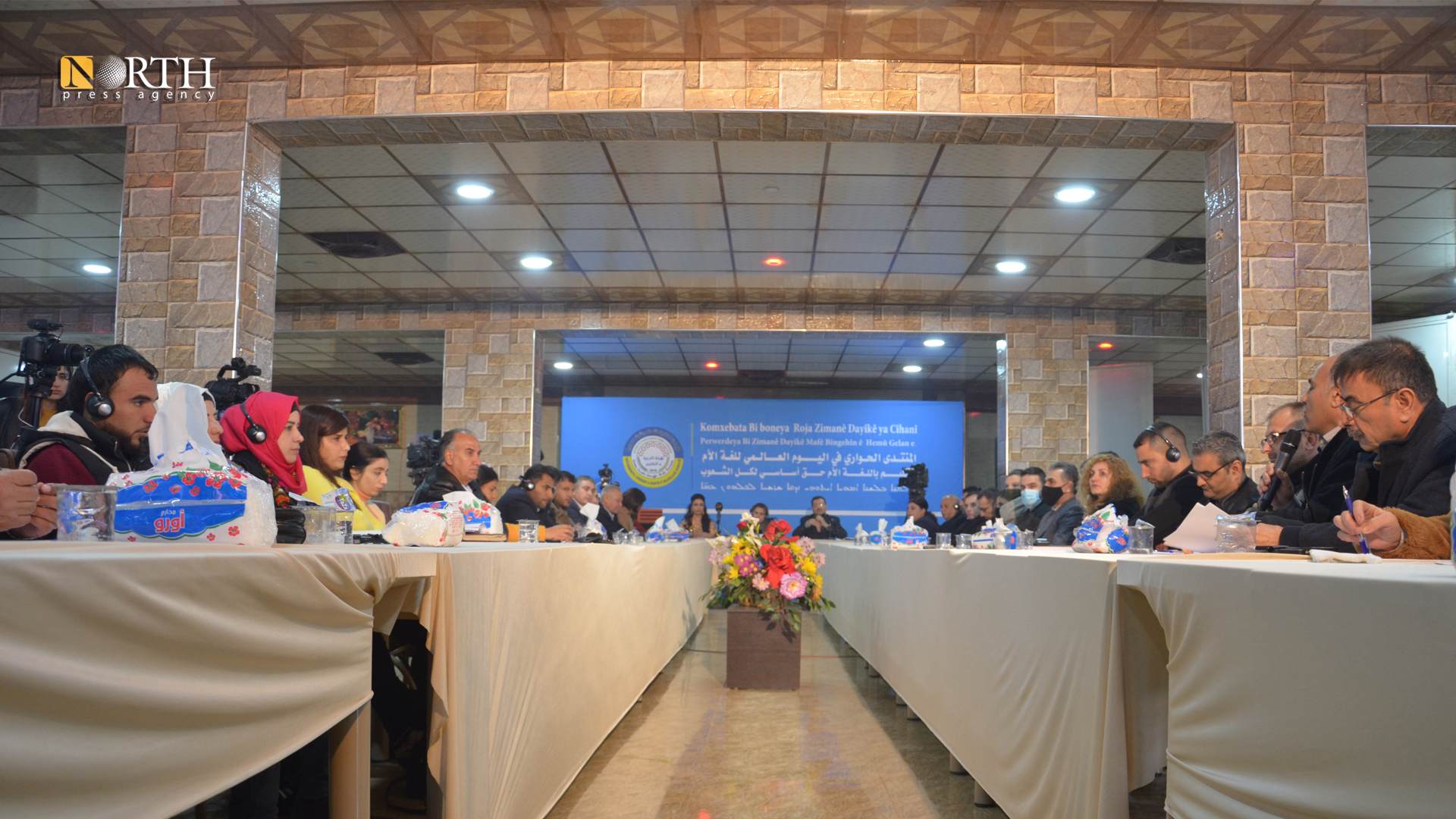Dialogue session in Syria’s Qamishli recommends right to learn mother language
QAMISHLI, Syria (North Press) – On Sunday, a dialogue session on the occasion of the International Mother Language Day was held by the Education Board of the Autonomous Administration of North and East Syria (AANES) in the city of Qamishli, northeast Syria.
Many intellectuals, jurists, representatives of civil society institutions, international and local organizations, and AANES officials attended the session.
The session concluded with issuing recommendations calling for international bodies and organizations to support projects of mother language education in northeast Syria.
“The work that is currently being done within the institution focuses on steps to enable the development of the Kurdish language, Nechirvan Abdulaziz, a participant from the Kurdish Language Foundation, told North Press.
“We must compare the Kurdish language with other languages, to which level these languages reached, and how they develop their languages,” he added.
In two sessions, the attendees discussed the issue of including mother language education in international laws and charters, as well as multilingual and cultural education within the educational system adopted in northeast Syria.
The dialogue session included two main axes: “The right to learn the mother language and its position in international and regional laws,” and “Multilingual and multicultural education in the educational system in northeastern Syria.”
“All the participants from all communities emphasized on learning the mother language,” Suheir Muhammad, member of Qamishli Schools Administration said.
“Mother language supports and broadens the students’ intellectual frameworks and makes them feel that they belong to the place they live in,” she added.
During the discussions, the participants discussed means of developing and supporting learning the mother language.
They pointed out to the issue of international law and the failure of some countries to implement laws and covenants.
“We demand the enactment of a law providing for the establishment of relations with peoples regarding languages and cultures, especially threatened and oppressed peoples,” Zahed Mahmoud, a lawyer, told North Press.
At its conclusion, the session concluded with several recommendations, including the need for the United Nations to adopt new mechanisms for making decisions and recommendations to take into account the opinion and interests of peoples, not just states.
The session recommended that the concerned international organizations as well as civil society organizations play an active role in supporting projects and institutions of mother language education in northeast Syria.
The recommendations also mentioned the necessity of providing educational curricula and studying materials that support the mother language and praising the experience of the AANES in this field and working to support and develop it.
The session called for coordination with civil and legal bodies to form a broad front that strengthens the rights of minorities and ethnicities in terms of the language.
February 21 marks the International Mother Language Day, as it was declared for the first time by UNESCO on November 17, 1999, to be officially endorsed later by the General Assembly of the United Nations.

